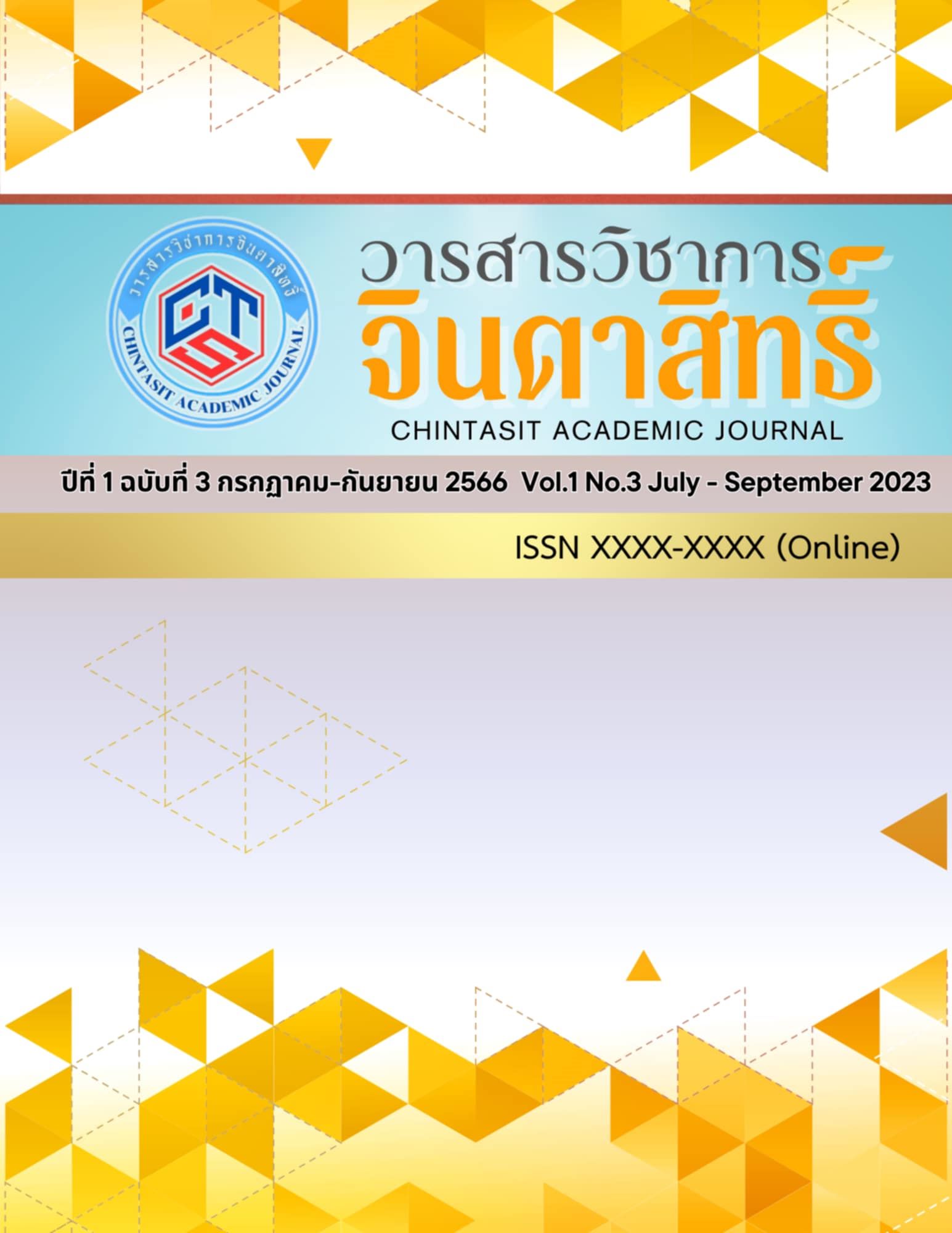Ethics in the Age of Artificial Intelligence: Preparing Students for the Future
Main Article Content
Abstract
This article presents approaches to preparing students for ethical challenges in the age of Artificial Intelligence (AI), focusing on developing analytical thinking skills, understanding AI's impacts, and ethical decision-making abilities. It discusses the importance of integrating AI ethics into educational curricula, teaching methods, and potential challenges, while suggesting evaluation methods and skill development necessary for the future. The article emphasizes the significance of collaboration between educational institutions, industry, and government in developing curricula that respond to societal needs in the digital era. It concludes by proposing ways to create a society where AI and humans can coexist creatively and sustainably.
Article Details

This work is licensed under a Creative Commons Attribution-NonCommercial-NoDerivatives 4.0 International License.
Chintasit Academic Journal is licensed under a Creative Commons Attribution-NonCommercial-NoDerivatives 4.0 International (CC BY-NC-ND 4.0) licence, unless otherwise stated. Please read our Policies page for more information on Open Access copyright and permissions.
References
ชัยวัฒน์ วิบูลย์สวัสดิ์. (2565). การพัฒนารายวิชาจริยธรรม AI สำหรับนักเรียนระดับมัธยมศึกษา. วารสารวิทยาการการจัดการ, 39(1), 45-62.
ธนารักษ์ ธีระมั่นคง. (2563). ปัญญาประดิษฐ์กับการพัฒนาทรัพยากรมนุษย์ในยุคดิจิทัล. วารสารพัฒนาสังคม, 22(1), 1-21.
ธีรเกียรติ์ เกิดเจริญ. (2565). การพัฒนาทักษะการคิดเชิงวิพากษ์ในยุค AI. วารสารศึกษาศาสตร์ มหาวิทยาลัยนเรศวร, 24(2), 15-28.
ธีระ รุญเจริญ. (2565). ภาวะผู้นำทางการศึกษา: ทฤษฎีและการปฏิบัติ (พิมพ์ครั้งที่ 4). สำนักพิมพ์แห่งจุฬาลงกรณ์มหาวิทยาลัย.
ปริญญา หอมเอนก. (2562). จริยธรรมปัญญาประดิษฐ์: ความท้าทายในยุคดิจิทัล. วารสารนิติศาสตร์ มหาวิทยาลัยนเรศวร, 12(2), 1-24.
ปานใจ ธารทัศนวงศ์. (2564). การบูรณาการจริยธรรม AI ในหลักสูตรการศึกษาไทย. วารสารครุศาสตร์อุตสาหกรรม, 20(1), 1-15.
รุ่งชัชดาพร เวหะชาติ. (2564). การบริหารสถานศึกษาในยุคดิจิทัล (พิมพ์ครั้งที่ 3). นำศิลป์โฆษณา.
วรรณดี สุทธินรากร. (2562). ภาวะผู้นำของผู้บริหารสตรีในสถานศึกษา: กรณีศึกษาโรงเรียนมัธยมศึกษาในกรุงเทพมหานคร. วารสารการบริหารการศึกษา มหาวิทยาลัยศิลปากร, 10(1), 156-170.
วิทยา ด่านธำรงกูล. (2564). การพัฒนาทักษะการตัดสินใจเชิงจริยธรรมในยุค AI. วารสารบริหารธุรกิจ, 44(169), 1-22.
วิโรจน์ สารรัตนะ. (2564). ภาวะผู้นำทางการศึกษา: แนวคิด ทฤษฎี และประเด็นเพื่อการวิจัย (พิมพ์ครั้งที่ 3). ทิพยวิสุทธิ์.
ศศิธร บัวทอง. (2562). การพัฒนาภาวะผู้นำของผู้บริหารสตรีในสถานศึกษาขั้นพื้นฐาน. วารสารศึกษาศาสตร์ มหาวิทยาลัยนเรศวร, 21(3), 290-304.
สำนักงานคณะกรรมการการศึกษาขั้นพื้นฐาน. (2563). รายงานประจำปี 2563. ผู้แต่ง.
สุภาพ ฉัตราภรณ์. (2563). การศึกษาความสามารถในการบริหารงานของผู้บริหารสตรีในสถานศึกษาสังกัดสำนักงานเขตพื้นที่การศึกษามัธยมศึกษา เขต 1. วารสารวิชาการศึกษาศาสตร์ มหาวิทยาลัยศรีนครินทรวิโรฒ, 21(1), 92-105.
สุภาพร พงศ์ภิญโญโอภาส. (2563). ปัจจัยที่ส่งผลต่อความสำเร็จในการบริหารสถานศึกษาของผู้บริหารสตรี. วารสารการบริหารการศึกษาและภาวะผู้นำ มหาวิทยาลัยราชภัฏสกลนคร, 8(31), 223-237.
สุมาลี ละม่อม. (2563). รูปแบบการพัฒนาภาวะผู้นำของผู้บริหารสตรีในสถานศึกษาขั้นพื้นฐาน. วารสารวิชาการและวิจัยสังคมศาสตร์, 15(3), 25-40.
สุรศักดิ์ ปาเฮ. (2564). การจัดการศึกษาด้านจริยธรรม AI ในประเทศไทย: สถานการณ์และความท้าทาย. วารสารศึกษาศาสตร์ มหาวิทยาลัยนเรศวร, 23(4), 15-30.
Banks, J. A., & McGee Banks, C. A. (2019). Multicultural education: Issues and perspectives (10th ed.). Wiley.
Bennett, M. J. (2017). Developmental model of intercultural sensitivity. In Y. Y. Kim (Ed.), The international encyclopedia of intercultural communication (pp. 1-10). Wiley.
Blumenfeld, P. C., Soloway, E., Marx, R. W., Krajcik, J. S., Guzdial, M., & Palincsar, A. (1991). Motivating project-based learning: Sustaining the doing, supporting the learning. Educational Psychologist, 26(3-4), 369-398.
Bostrom, N., & Yudkowsky, E. (2014). The ethics of artificial intelligence. The Cambridge handbook of artificial intelligence, 316, 334.
Burton, E., Goldsmith, J., Koenig, S., Kuipers, B., Mattei, N., & Walsh, T. (2017). Ethical considerations in artificial intelligence courses. AI Magazine, 38(2), 22-34.
Cath, C., Wachter, S., Mittelstadt, B., Taddeo, M., & Floridi, L. (2018). Artificial intelligence and the 'good society': The US, EU, and UK approach. Science and Engineering Ethics, 24(2), 505-528.
Crocco, M. S., Segall, A., Halvorsen, A. L., & Jacobsen, R. (2018). Deliberating public policy issues with adolescents: Classroom dynamics and sociocultural considerations. Democracy and Education, 26(1), 3.
Dignum, V. (2018). Ethics in artificial intelligence: Introduction to the special issue. Ethics and Information Technology, 20(1), 1-3.
Floridi, L., Cowls, J., Beltrametti, M., Chatila, R., Chazerand, P., Dignum, V., ... & Vayena, E. (2018). AI4People—An ethical framework for a good AI society: Opportunities, risks, principles, and recommendations. Minds and Machines, 28(4), 689-707.
Grover, S., Basu, S., Bienkowski, M., Eagle, M., Diana, N., & Stamper, J. (2020). A framework for using hypothesis-driven approaches to support data-driven learning analytics in measuring computational thinking in block-based programming environments. ACM Transactions on Computing Education (TOCE), 20(2), 1-25.
Holmes, W., Bialik, M., & Fadel, C. (2019). Artificial intelligence in education: Promises and implications for teaching and learning. Center for Curriculum Redesign.
Holstein, K., McLaren, B. M., & Aleven, V. (2019). Co-designing a real-time classroom orchestration tool to support teacher–AI complementarity. Journal of Learning Analytics, 6(2), 27-52.
Makridakis, S. (2017). The forthcoming Artificial Intelligence (AI) revolution: Its impact on society and firms. Futures, 90, 46-60.
Park, Y. (2019). DQ Global Standards Report 2019: Common Framework for Digital Literacy, Skills and Readiness. DQ Institute.
Pearce, T. C., Zaki, M., Brintrup, A., & Neely, A. (2019). High-Value Manufacturing: Capability, Appropriation, and Governance. California Management Review, 61(4), 115-135.
Pedaste, M., Mäeots, M., Siiman, L. A., De Jong, T., Van Riesen, S. A., Kamp, E. T., ... & Tsourlidaki, E. (2015). Phases of inquiry-based learning: Definitions and the inquiry cycle. Educational Research Review, 14, 47-61.
Stone, P., Brooks, R., Brynjolfsson, E., Calo, R., Etzioni, O., Hager, G., ... & Teller, A. (2016). Artificial intelligence and life in 2030: One hundred year study on artificial intelligence. Stanford University.
Touretzky, D., Gardner-McCune, C., Martin, F., & Seehorn, D. (2019). Envisioning AI for K-12: What should every child know about AI? Proceedings of the AAAI Conference on Artificial Intelligence, 33(1), 9795-9799.
von Schomberg, R., & Hankins, J. (Eds.). (2019). International handbook on responsible innovation: A global resource. Edward Elgar Publishing.
Winfield, A. (2019). Ethical standards in robotics and AI. Nature Electronics, 2(2), 46-48.
Winfield, A. F., Michael, K., Pitt, J., & Evers, V. (2019). Machine ethics: The design and governance of ethical AI and autonomous systems. Proceedings of the IEEE, 107(3), 509-517.
Zuckerman, O., Gal-Oz, A., Tamir, N., & Kopelman-Rubin, D. (2021). Designing an experiential learning activity to develop ethical and professional skills in computer science and engineering education. Computer Science Education, 31(1), 77-105.


